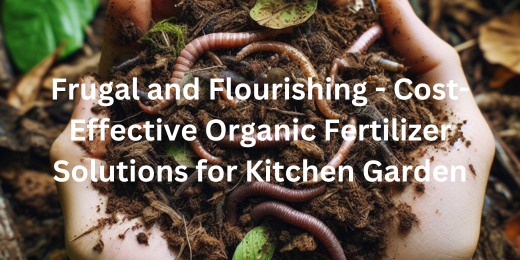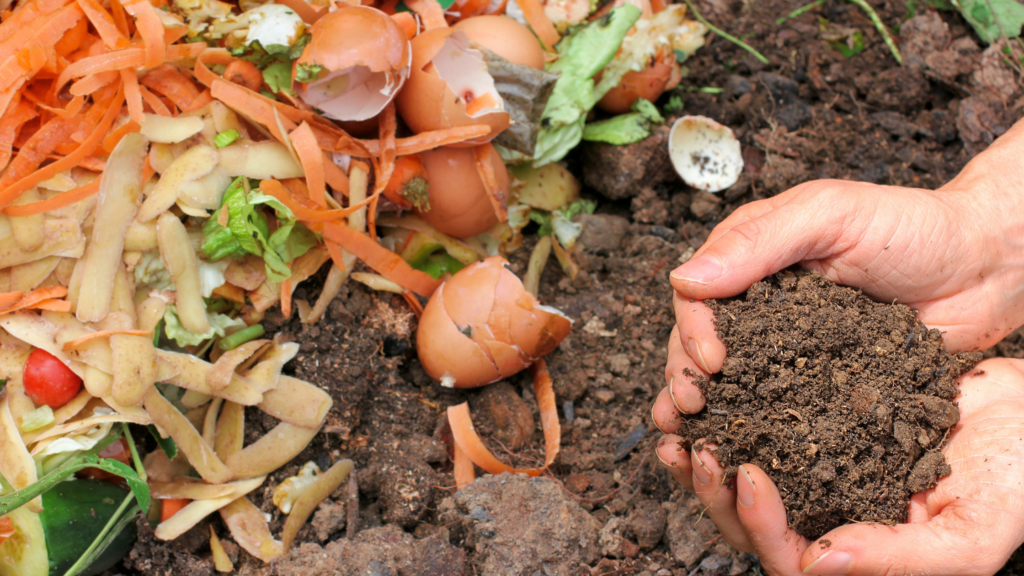
Frugal and Flourishing – Cost-Effective Organic Fertilizer Solutions for Kitchen Garden
Organic fertilizer for kitchen garden
Introduction to Cost-Effective Organic Fertilizers
Organic fertilizer for kitchen garden is essential for nurturing healthy plants while maintaining environmental sustainability. Unlike chemical fertilizers, organic fertilizers promote soil health and enhance plant growth naturally. By utilising cheap organic fertilizer, gardeners can not only save money but also contribute to a greener, healthier ecosystem.
Using organic fertilizers offers various benefits, including improved soil structure, enhanced nutrient retention, and reduced environmental pollution. Cost-effective solutions such as homemade compost or locally available organic materials provide an economical alternative to store-bought fertilizers. Additionally, cheap organic fertilizer options are often rich in essential nutrients, supporting robust plant growth and higher yields in the kitchen garden.
When planning for a kitchen garden, it’s important to consider the specific organic fertilizer needs of different plants and soil types. By incorporating cheap organic fertilizer solutions into gardening practices, individuals can create a sustainable and thriving ecosystem right in their backyard. With proper knowledge and application techniques, cost-effective organic fertilizers can help transform any kitchen garden into a flourishing oasis of fresh produce and vibrant blooms.
Understanding Organic Fertilizer Components
Organic fertilizer for kitchen garden comprises various natural components that enrich the soil and nourish plants. Common types of organic materials include compost, manure, and plant-based materials like seaweed or bone meal. These materials provide essential nutrients such as nitrogen, phosphorus, and potassium, along with micronutrients crucial for plant growth and soil health enhancement.
Compost, a blend of organic matter like kitchen scraps and yard waste, enriches the soil with nutrients and improves its structure. Manure, sourced from animals like cows or chickens, is another valuable organic material rich in nutrients. Additionally, plant-based materials like seaweed or fish emulsion contribute essential micronutrients such as iron and magnesium, vital for soil health enhancement and plant vitality.
Understanding the nutrient composition of organic fertilizers is essential for effectively nourishing kitchen garden plants. Potassium encourages the growth of flowers and fruits, phosphorus helps with root development, and nitrogen supports the growth of leaves. By incorporating a variety of cheap organic fertilizer sources rich in these nutrients, gardeners can ensure their plants receive all the essential elements for healthy growth and abundant yields.

Homemade Fertilizers
Homemade fertilizers offer an affordable and sustainable way to nourish your kitchen garden plants. One popular option is compost tea, made by steeping compost in water to extract nutrients. Simply gather compost, water, and a container, let it brew, then dilute and apply to plants for a nutrient boost.
Another homemade option is manure-based fertilizers, which can be made from various types of animal manure such as cow or chicken. Collect the manure, mix it with water, and let it decompose to create a nutrient-rich liquid fertilizer. Apply the diluted mixture to your garden soil or directly to plants for optimal growth.
Both compost tea and manure-based fertilizers provide numerous benefits for plants, including improved soil fertility, increased microbial activity, and enhanced nutrient uptake. These homemade solutions are not only cheap organic fertilizers but also environmentally friendly, reducing the need for synthetic chemicals in your garden while promoting long-term soil health and plant vitality.
Budget-Friendly Fertilizers
For those seeking cheap organic fertilizer options, locally available choices like neem cake, bone meal, and fish emulsion are excellent alternatives. Conducting a price analysis and comparing the effectiveness for different plants can help you choose the most cost-efficient option. Additionally, consider the environmental impact of each fertilizer to make an eco-conscious decision for your kitchen garden.
Neem cake is a by-product of neem seed oil extraction, rich in nutrients and beneficial compounds for plant growth. Bone meal provides a slow-release source of phosphorus and calcium, ideal for flowering and fruiting plants. Fish emulsion, derived from fish waste, offers a potent source of nitrogen and other micronutrients, promoting lush foliage and healthy root development.
While these locally available organic fertilizers may vary in cost and effectiveness, they all contribute to sustainable gardening practices. By weighing the price analysis against their benefits for different plants and considering the environmental impact, gardeners can make informed choices to nourish their kitchen garden while staying within budget and supporting eco-friendly principles.
Application Techniques for Optimal Results
To achieve optimal results with organic fertilizer for kitchen garden, it’s crucial to master proper application techniques. Consider the timing of fertilizer application based on seasonal changes and plant growth stages. Adhere to recommended frequency of application to prevent nutrient deficiencies or excesses in the soil.
Ensure accurate dosage and application methods, following specific dilution ratios for liquid fertilizers. Decide between foliar spraying directly onto plant leaves or soil application around the base of plants. Avoid over-fertilization, which can harm plants and lead to environmental pollution, by carefully measuring and distributing fertilizers according to guidelines.
By understanding the significance of timing, dosage, and application methods, gardeners can maximise the benefits of cheap organic fertilizer while minimising risks of nutrient imbalances. Whether it’s providing nutrients during key growth stages or adjusting application rates based on plant needs, adopting proper techniques ensures healthy, thriving plants in the kitchen garden.
Monitoring and Adjusting Fertilizer Practices
Monitoring and adjusting fertilizer practices is vital for maintaining a healthy kitchen garden. Watch out for signs of nutrient deficiencies such as yellowing leaves, stunted growth, or poor fruit/flower development, indicating the need for nutrient adjustment.
Conduct soil testing regularly using DIY methods or professional services to assess nutrient levels accurately. Based on soil test results, adjust fertilizer regimes accordingly to meet plant requirements and prevent deficiencies or excesses. Embrace sustainable practices for long-term garden health, including composting, mulching, and crop rotation to maintain soil fertility naturally.
By monitoring and adapting fertilizer practices, gardeners can ensure their kitchen garden thrives with the right balance of nutrients for robust plant growth and abundant harvests. Get the best organic fertilizers at your local Uyir Organic Farmers Market! Or, order online at www.uyironline.inor www.uyirorganic.farm.